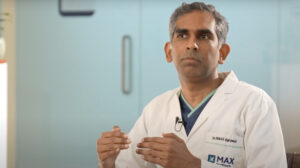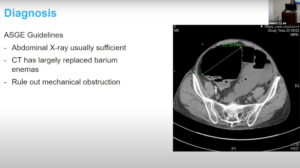NEW YORK (Reuters Health) – Patients undergoing endoscopic retrograde cholangiopancreatography (ERCP) and biliary stent placement are more likely to develop pancreatitis after the procedure than those not requiring a stent, according to a new study.
Dr. C. Mel Wilcox and colleagues at the University of Alabama at Birmingham note in Gastrointestinal Endoscopy online 14 July that various factors are known to increase the likelihood of post-ERCP pancreatitis, but the effect of bile duct stent insertion hasn’t been well studied.
The team analyzed data on 3499 patients who had undergone ERCP at their center over a 7.5 year period. Biliary stenting was performed in 1131 of the patients, and 660 of them had not undergone prior biliary sphincterotomy or stent placement.
Pancreatitis occurred in 3.17% of the whole cohort. On multivariate analysis, six factors were independently associated with pancreatitis, most of which were already known to be risk factors – such as young age and a history of pancreatitis. Bile duct stenting conferred an odds ratio of 1.72 for pancreatitis.
Further analysis showed that the odds were not related to the length or type of stent, or to sphincterotomy performed before stent insertion.
Furthermore, Dr. Wilcox and colleagues found, “The rate of pancreatitis of 3.42% (10 cases in 292 patients) in patients with cholangiocarcinoma, pancreatic cancer, or malignant nodal obstruction was not significantly higher than the rate of pancreatitis of 2.45% (9 cases in 368 patients) in patients with other indications (p=0.228).
As for the mechanism of pancreatitis related to biliary stenting, the authors say it’s speculative but suggest that “obstruction of the pancreatic sphincter may be causative.”
Reference:
Biliary stent placement is associated with post-ERCP pancreatitis
Gastrointest Endosc 2010




